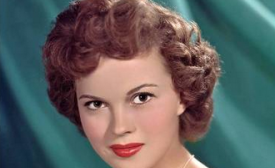Cultural Diplomacy
Wherever he goes, Los Angeles Philharmonic music director Gustavo Dudamel is hailed as a symbol of El Sistema, Venezuela's model music education program. But Tuesday Dudamel arrived in L.A. as the subject of criticism for not speaking out against Venezuelan President Nicolás Maduro's policies.
Films from Asia are the clear winners at the 2014 Berlinale film festival in the German capital. Chinese thriller “Black Coal, Thin Ice”, scooped the top Golden Bear prize, while Liao Fan, who played the lead role in the film, won the Silver Bear for Best Actor. Told through flashbacks, the story is about a former policeman investigating gruesome murders in 1990s northern China.
George Clooney has claimed that France should return the Mona Lisa to Italy during a promotional tour for his new film The Monuments Men, according to the Hollywood Reporter. The comments, which follow Clooney's repeated claims over the past week that Britain should return the Parthenon marbles to Greece, were reportedly made in Milan at a press event during which the film's cast posed in front of the famed Leonardo da Vinci masterpiece The Last Supper. The film's director was joined by co-stars Matt Damon, Bill Murray, Bob Balaban, Jean Dujardin and John Goodman for the event.

Shirley Temple Black, an American cultural icon of the Great Depression Era, and U.S. Ambassador to both Ghana (1974-76) and Czechoslovakia (1989-92), passed away on Monday, February 10th. CPD reached out to a few public diplomacy scholars and practitioners for their take on her global public diplomacy impact.
The Internet is eating up "Another View on Iran," a provocative photo essay by photographer Hossein Fatemi. The exposé gives a global audience the chance to peer into the country's more modern (or scandalous) sub-culture where men and women socialize together, drink alcohol and listen to rock music. The country bans these activities, but many citizens still participate in them. Sounds familiar, doesn't it?
Shirley Temple Black’s career speaks to the inherent power of cultural diplomacy to move people in positive ways. As perhaps the biggest child movie star in history, she made magic with her dance and voice—and her talent echoed around the world as did her powerful films which made America look vibrant and culturally robust. In many ways she made America into the great “fairy tale” it could be—a nation beckoning others with its openness and warmth.
Spaniards like Garcia Lorca arrived fleeing the likes of Franco; now they’re fleeing the Spanish economy. When Jose Manuel “Manolo” Gomara arrived in New York City for the first time in 2010, he had been away from his home country of Spain for a year, working at a restaurant in Cancun, Mexico. But he wasn’t done with his travels, and the image of this metropolis, one he gleaned from watching television as a kid, had always loomed in his mind.
Over the past few years, Sabir Nazar has emerged as Pakistan's best known cartoonist for drawing a series of cartoons that take a sharply critical look at religious orthodoxy, conspiracy theories, and misinterpretations of current affairs that feed into the Pakistani mass consciousness. Through cartoons and comments posted on the social networking site Facebook, he offers biting insights that turn commonly-held viewpoints and beliefs about Pakistan on their heads.







